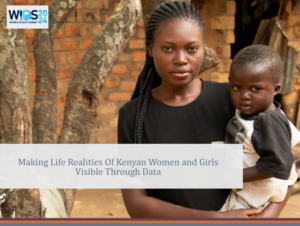![]()
Perspectives on Open Data: Ethiopia

AODN had a chance to meet with Dr. Worku Alemu from Ethiopia, an AODN Fellow – 2019 on his perspectives on Open Data in his country.
The Freedom of Mass Media and Access to Information Proclamation of Ethiopia (Proclamation No: 590/2008 of 2008), under article 13 states that any public body (Government Organization) shall publish information concerning, among others, a description of the type of the records under its possession, a brief description of the contents of its records and the detailed explanation of the procedures to be followed by persons who wish to access this information. Though the proclamation was enacted in 2008 well before the idea of open data initiatives conceived, it defined the important legal foundations for open data initiatives to be implemented in the country.
Consequently, the then Ministry of Communication and Information Technology (MCIT) requested the World Bank for assistance to conduct an Open Data Readiness Assessment (ODRA), which was completed in June 2014. The Ethiopian Government has since embarked on addressing the issues raised on the ODRA report.
MCIT in partnership with the World Bank designed a project with the objective of enhancing transparency through implementing the recommendations emanating from the ODRA report. Its expected outcomes were the development of a national open data guideline, improved access to open data, and development of mobile apps to access data. Partial implementation of this project included the launch of the data.gov.et data portal in 2016 which published 29 datasets in open formats. An MOU has also since been signed between the MCIT who manage the technology side of the Open Data portal and the Central Statistics Agency (CSA), which is the custodian of all government data in the country. Open data awareness creation training has been given to CSA staff and other government ministries. MCIT has also produced a draft open data policy and guideline though both are not operational yet.
Three years after its launch however, the open data portal www.data.gov.et is down which, according to external observations, is attributed to restructuring of the responsible ministry – MCIT and other factors. The then MCIT is now merged with Ministry of Science and Technology (MoST) to form Ministry of Innovation Technology (MInT) since 2018.
Currently there is no visible active open data engagement from the CSA side due to a number of factors. Among them are that the National Statistics office which was a key partner in the portal launch has been held up with national census which was scheduled to be conducted in March 2019 but was pushed forward at the 11th hour. Expected technology support from MCIT was also not provided as required towards the process due to the restructuring. The most important factor contributing to the reluctance of actors from the National Statistics side is that the data they published on the portal were just survey data, some of which were obsolete as CSA had difficulties getting timely administrative data from sectoral ministries.
Lack of demand also seems to be a major setback which deters open data to flourish in the country. From the discussions conducted with the CSA staff, it is apparent that the lack of evidence of data utilization from the users’ side is discouraging. The ODRA has attributed the lack of demand to lack of awareness and capacity. The World Bank Project report also stated that “…there seemed to be no active demand for data from civil society organizations, the private sector or the media; as things stand these parties usually reported on the synthesized information that was provided by various MDAs without further analysis.”
The private sector in the IT field is still in its infancy stage in Ethiopia compared to other countries on the African continent, and a significant portion of the sector is engaged in hardware rather than data driven services. There however have been a few communities of not registered Civil Society Organizations(CSOs), like of Code4Ethiopia, Open Knowledge Ethiopia, and HacksHackers Addis Ababa, who have been engaged in promoting open data initiatives, more specifically conducting workshops and training to stimulate the open data demand side.
Overall, unavailability of Open Data champions from the government side, absence of stakeholders including the private sector, CSOs, research institutions and data labs working on improving the data ecosystem in the country, and diminished demand from the general public towards government data have been exacerbating the open data situation.
It is well understood that Ethiopia, based on a founding legal framework (the proclamation), has started in the right direction by conducting the ODRA, developing open data policy and guideline (draft), establishing an executive body (MCIT and CSA) and developing the portal. Now is time to revitalize the open data initiative by conducting intensive awareness creation and capacity building through stakeholders engagement both from the private sector, CSOs, development partners and academic/research institutions.
Still, the future of open data is not that gloomy in the country. The new government seems willing to fully implement the Freedom of the Mass Media and Access to Information Proclamation. There are visible pieces of evidence of its commitment toward adoption and innovation of technology to enhance government transparency and accountability. Unitary initiatives by Ministries to make their data accessible to the public in machine-readable formats is another advantage which needs to be further researched and utilized. A case in point is the initiative by the Ministry of Agriculture and the Agriculture Transformation Agency (ATA) on data sharing in Agriculture with a focus on soil and agronomy data.




